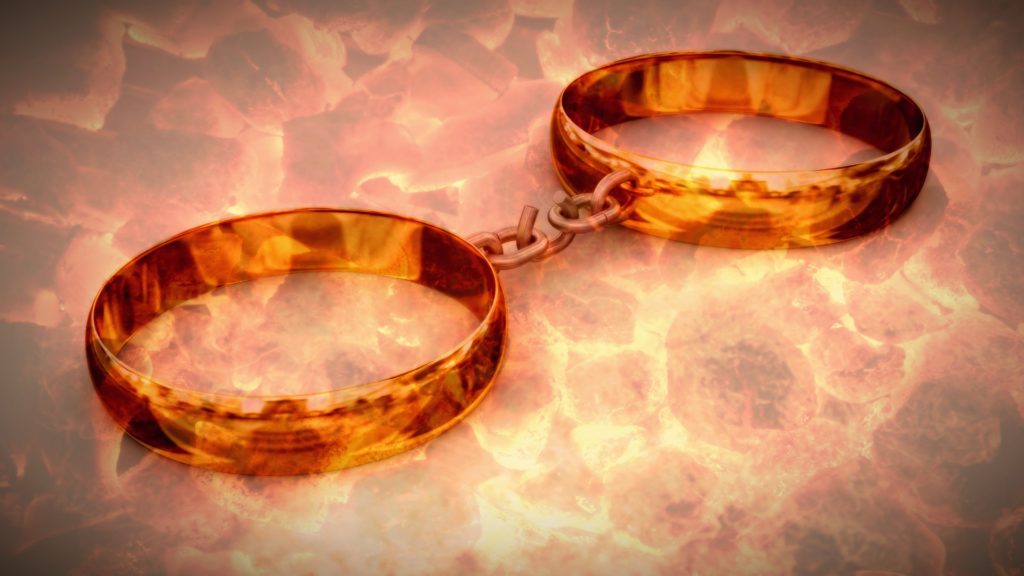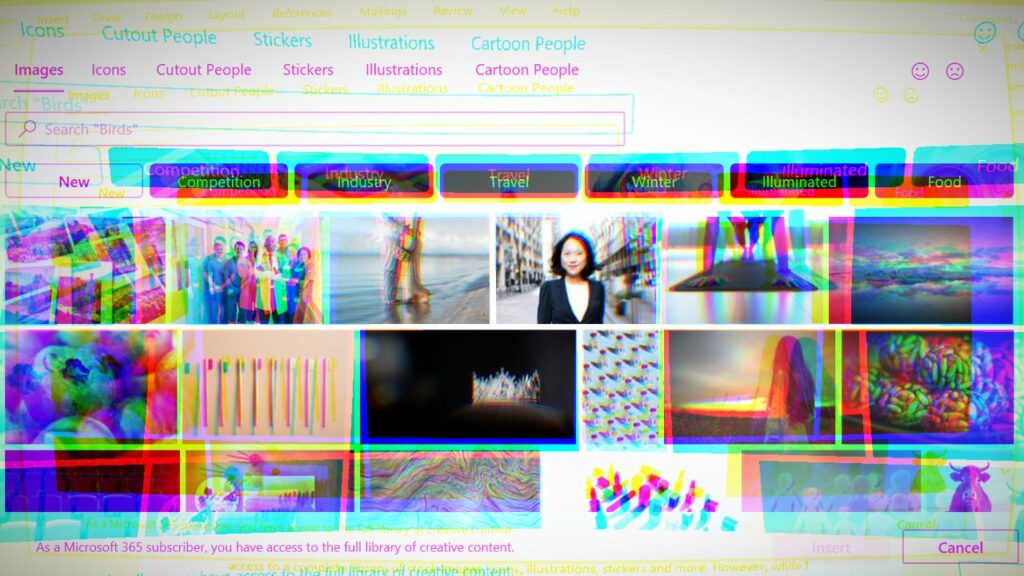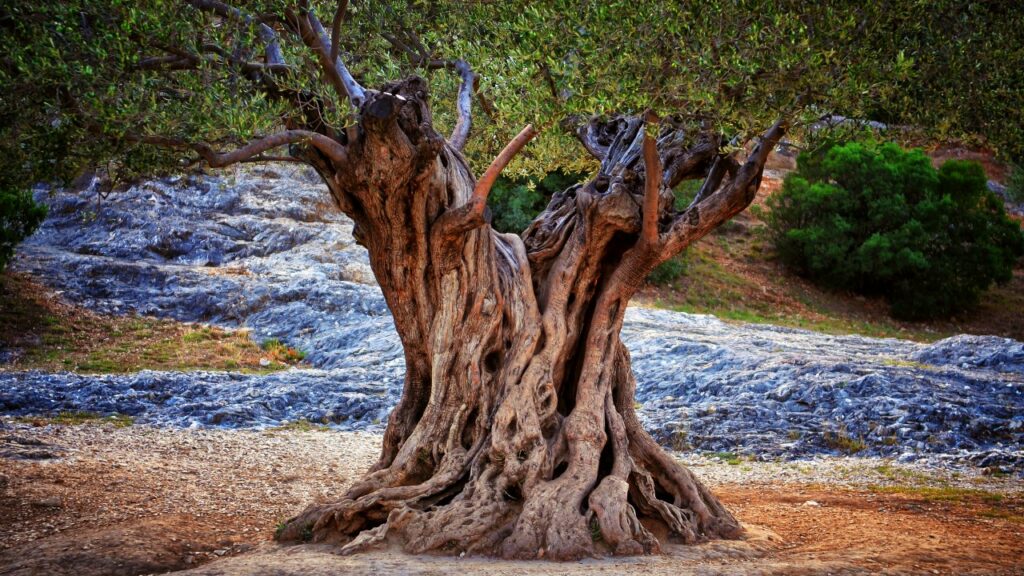Gather around children! Today we are going to hear the tale of Ar-Amazôn and the Rings of Power.
Oh, it is a tale as old as time itself. A story about a man who had everything, yet knew no satisfaction, and always craved for more. So vain a man Ar-Amazôn was, he gathered all his might and fortune and tried to claim the undying creation of J.R.R Tolkien for himself.
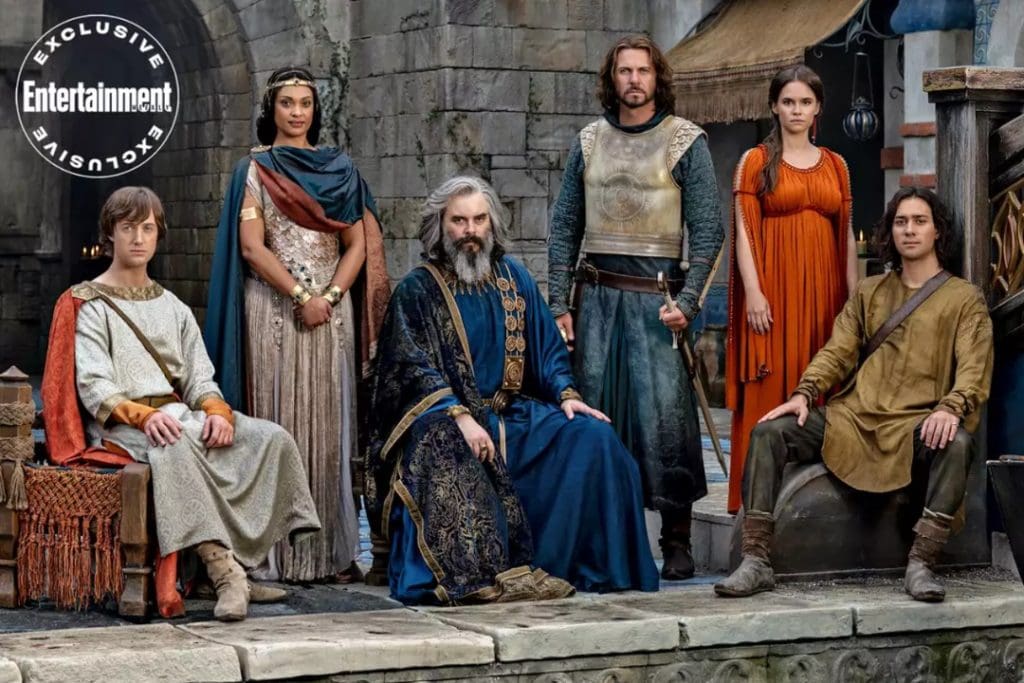
But he thought wrong. When his Horn of Prime echoed throughout the Fandom with the sounds of intersectionality and identity politics, only a few answered the call. Most could see the darkness in his motives, and rightfully rejected his show for being nothing but a pale imitation of the thing they knew and loved.
The world was changed.
Introduction
I am a huge Lord of the Rings and Tolkien fan. How huge? Let’s just say that the appendix in The Silmarillion was my gateway drug to languages, and that the day I found out my name RAN was the Elvish root for the verb ‘to wander’ (like in Mithrandir), was one of the happiest days of my life.
Most of my fanhood years, I kept my passion to myself and to a small circle of very close friends. I was not a part of any community, didn’t attend conferences, and didn’t take part in any sort of online discussions.
All this changed lately, and the reason for that is Amazon Prime’s newest Lord of the Rings adaptation – The Rings of Power. A war is raging now in the fandom between two factions. On one side we have the loyalists who want to see the masterpiece they hold so dear treated with the respect it deserves, and on the other side we have the revisionists who believe Tolkien’s world should be updated to better reflect our own.
One of the core issues fueling this conflict is the question of casting. More specifically – casting black actors to play the roles of Elves, Dwarves, and Hobbits even though they very clearly don’t look the part as described by Tolkien. Many fans have raised an eyebrow or two when the first teaser images of these new characters came out, and they were immediately met with vicious name calling and accusations of being racist and toxic.
But is it inherently racist? I don’t think so, and in this article I will do my best to explain why.
Concerning Middle-Earth
Let me start with something we can all agree on. Tolkien created a tribal world, and like it or not – in such a world hair color, eye color and yes – even skin color, are all cultural markers who have a certain role to play. You got a problem with that? Then Middle Earth is probably not for you.
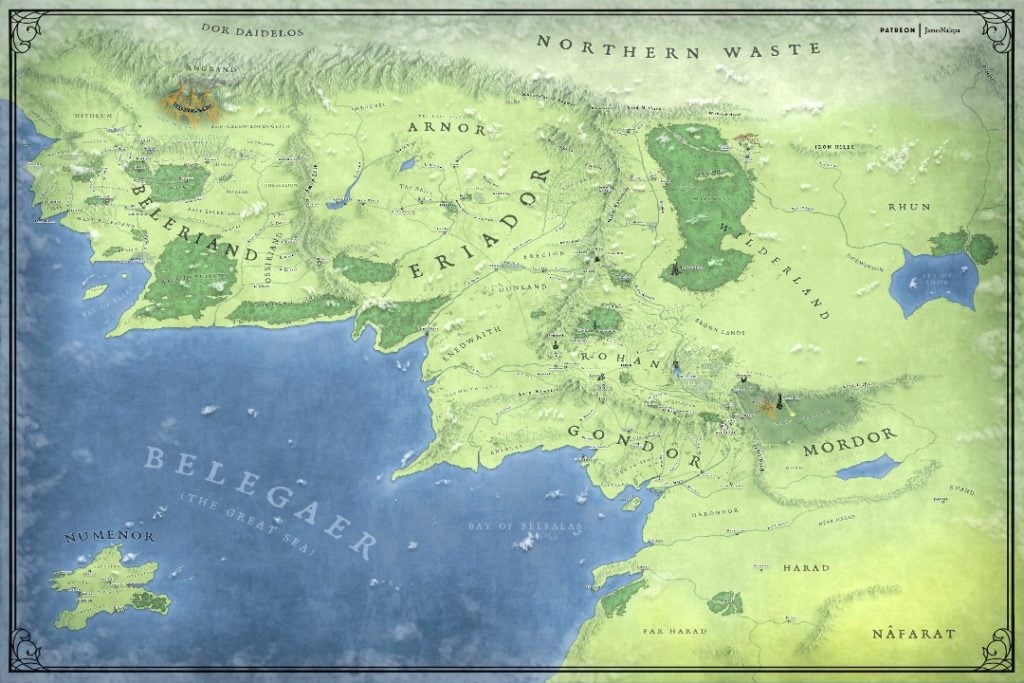
Middle Earth is supposed to feel like England and other parts of Europe in a time when people could take one look at a person and have a pretty good idea about his or her origin and affiliation. Noldor Elves look different than Vanyar Elves and they both look different than the Nandor. The Rohirrim look different than the People of Gondor and both could probably identify a Dunlending by appearance only.
Tolkien was very meticulous about this. He described each race in great detail and wove history, lore, calendars, and even entire lineages directly into his mythology. He did all that to provide two things – depth and authenticity.
It is perfectly legitimate to argue that the need and ability to cast people regardless of their skin color in our world take precedence over any rule set by Tolkien. But at least acknowledge it breaks the logic Tolkien worked so hard to create, and not wanting to see it break is just as legitimate, and has nothing to do with racism.
Ask yourself the following question: is it racist to say that casting an Asian looking person as a Fremen in Dune is not in accordance with the book, and that doing so (without any context) will break its logic? Because it is the exact same framing – it concerns the skin color of a fictional race in a fictional world as described by a very dedicated author in order to give a sense of depth and authenticity to his work.
The Lingual Angle
I admit it’s really hard for us in this day and age not to see racism once skin color becomes part of the equation. It is sad just as it is true. Therefore, I propose we look at this from a different perspective – language.
If there is one thing Tolkien was more meticulous about than all the cultural features I mentioned earlier, it is the languages he created for each race and its peoples. These languages provide more depth to his world than any other aspect, and two of his most notable lingual creations are Quenya and Sindarin. Quenya is High Elvish and is based on Finnish, while Sindarin is more like the common Elvish tongue of Middle Earth and is based on Welsh.
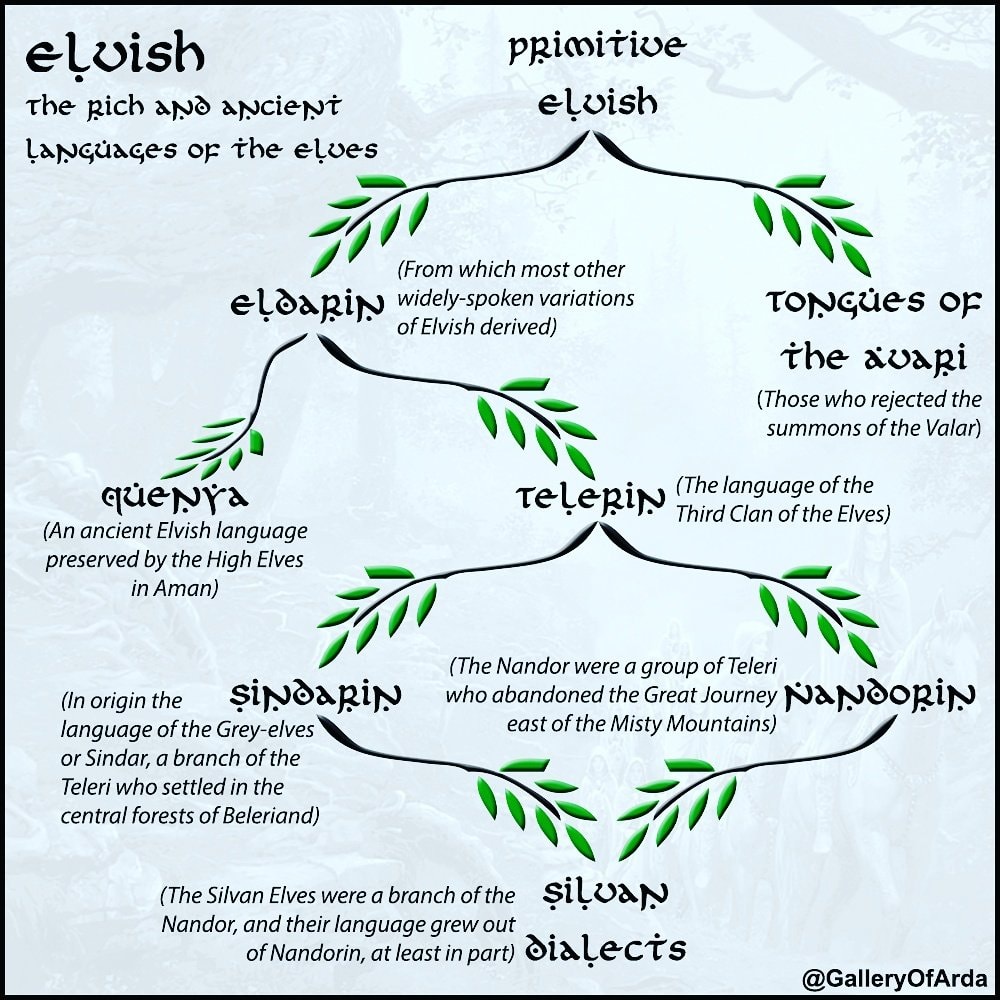
Just like Tolkien’s description of the races and the peoples of Middle-earth, these two languages (along with all the other languages he constructed) were meant to provide a sense of depths and authenticity. But both the languages and detailed description of their speakers were also meant to do one more thing – to help establish the stories of Middle-Earth as a genuine Anglo-British mythology which feels like an integral part of European Folklore.
That is why for instance, one of the names for Númenor in Quenya is Atalantë – a very obvious reference to Atlantis. That is why in the Tongue of Rohan, which is based on Old English, we have the word Holbytla (Hole-builder) for Hobbit. That is why Eldar, the name given to the Elves by the Vala Oromë, is so similar to the word ‘elder’ as they are The Firstborn. That is why Dwarfs write in runes and not in hieroglyphs.
Now imagine someone came and said that in the name of diversity and inclusivity, or for the purpose of making minority cultures not only more visible but also more audible on screen, the production will add the tongue clicks of African Languages like Zulu or Xhosa to Quenya, and the tones of many Southeast Asian language like Mandarin and Cantonese Chinese will now be an integral part of Sindarin.
Would you consider it bigotry to simply state it no longer sounds European, nor feels like what Tolkien had originally created? Is it a crime to notice that even in constructed languages some sounds stick out like a sore thumb? I personally have nothing against these languages, in fact I spent the better part of two decades learning Mandarin Chinese, but I don’t mind saying it will be very jarring to my ears to hear those sounds in Sindarin as well.
All this is not to say there aren’t real racists out there who’s desire to not see black people portraying Elves and Dwarves in Middle Earth is rooted in actual racism and bigotry. But sadly, in this case there is no way to really tell who is being racist and who just deeply cares about Tolkien’s creation and doesn’t want to see one of its most essential and magical characteristics distorted beyond recognition.
Who is the real villain here?
If you are quick to slap the racist label on everyone who has reservations about these creative decisions, I have some bad news for you. You are not the hero here. You are the Boromir, or Denethor, or even the Saruman of this story. Because instead of seeking to destroy one of the most powerful weapons the enemy has ever created, you thought you could wield it yourself and use it against him.
There is no question that racism is pure evil, and that this is (sadly) a very powerful and dangerous idea. An idea that has been used to twist the hearts of men and bend their will in the service of unspeakable horrors.
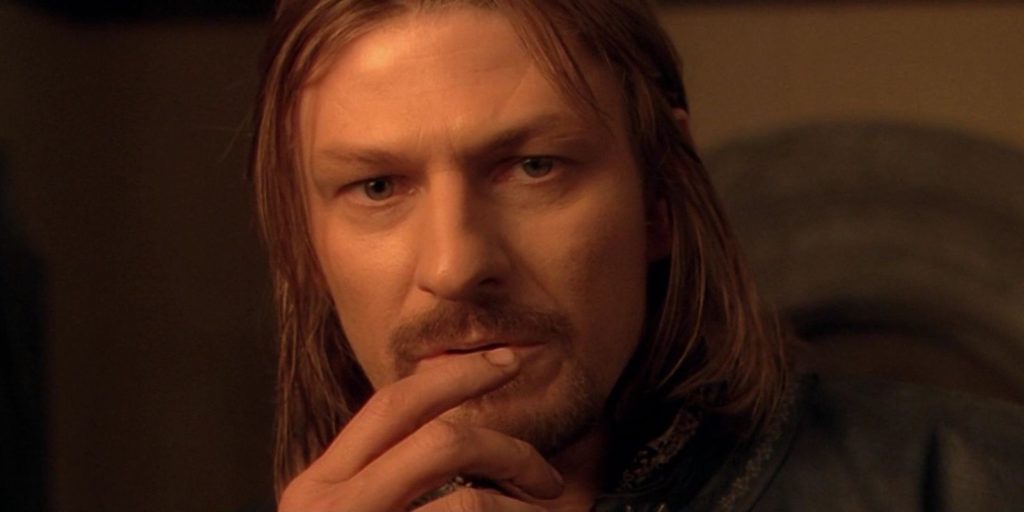
There is also no question that many of you, just like Boromir, only ask for the strength to defend your people. And like Denethor, many of you have probably told yourselves that it should be kept safe. Hidden. Dark and deep in the vaults, not to be used. Unless at the uttermost end of need. A few amongst you are probably more like Saruman – just want to accumulate more power for yourselves.
But regardless of your original intent and motives, the end result is all the same and you are now a slave to the very weapon you tried to master. You may have invoked the issue of race from desire to do good, but through you it now wields a power too great and terrible to imagine. This dark power has taken hold of you, and you are now obsessed, possessed, and consumed (quite literally in Hollywood’s case) by the idea of race. You cannot help but see everything through the lens of race, and I dare even say that just like Gollum – you now love and hate racism, just as you love and hate yourself.
A Long-expected Part
Nothing demonstrates this obsession with race better than the need to act out racism on screen. It’s one thing to cast a black actor as an Elf, but if all you can think about as a producer is “man, we must include a scene showing him in chains”, then something is seriously wrong you.
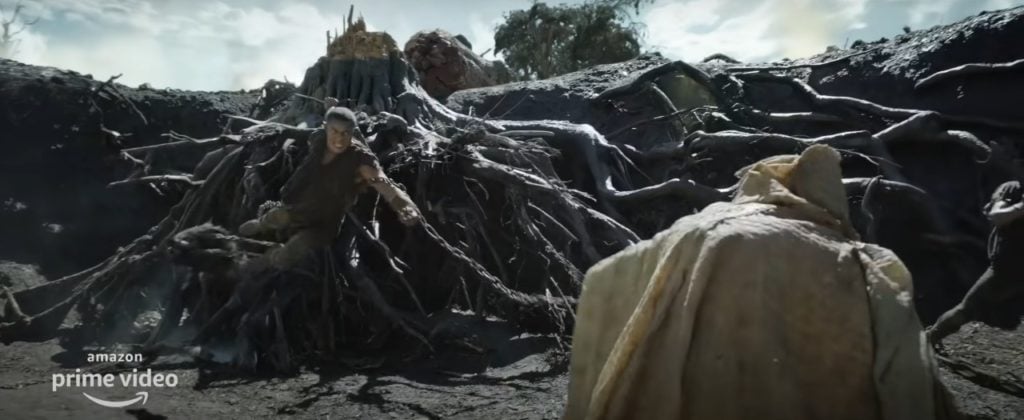
What’s next!? A spinoff titled ‘Ten Thousand Years a Slave’? For the second season, why don’t you slap a tiny mustache on Sauron and have him make passionate speeches about his Final Solution to the problem of the short, bearded people with big noses hoarding all the gold? It will be only slightly more transparent than the Orc-KKK.
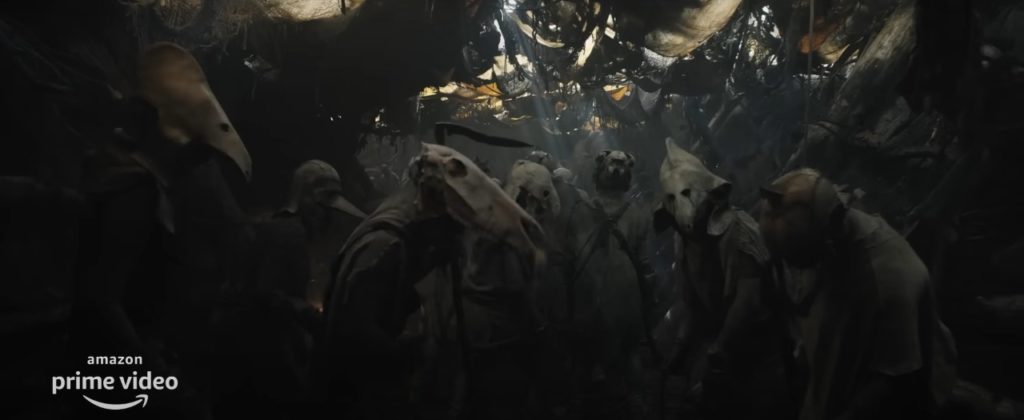
This compulsion to inject Middle Earth with the sad history and messed up politics of our world is way more infuriating than the so called “blind casting”. Plus, it is clearly not blind nor random when almost all of them somehow end up in the same type of role, which is obviously written to promote your own ideas, rather than what the story actually needs.
Let go the Shadows of the Past
The other day I sat and thought really hard, trying to figure out what really bothered me about the Rings of Power trailer ever since it came out on July 14th.
I narrowed it down to the dialogue between Elrond and Galadriel (starts at 00:48). Still, I couldn’t put my finger on what exactly, so I kept on pondering. I cast aside all the usual suspects like bad casting, flawed design, unfitting costumes, poor language and all the other aspects I was already well aware of. Then it dawned on me like a swift sunrise in a far green country – what really bothered me was the dynamics between the two characters. It sounds like a father telling his daughter to stop playing and come home for dinner, while she replies that there is still light outside, and that he has no idea how much fun it is.
All I could think was this: Elrond, with all due respect (which you most certainly deserve), that is Galadriel you are speaking to. The Lady of Light; born in Valinor under the light of the trees before the First Age; one who has seen the darkness in Fëanor’s heart; one of those who did not take part in the Kinslaying at Alqualondë; an apprentice of the Maia Melian, and one of the most powerful beings in Middle Earth herself. For your own sake Elrond, please show some respect.
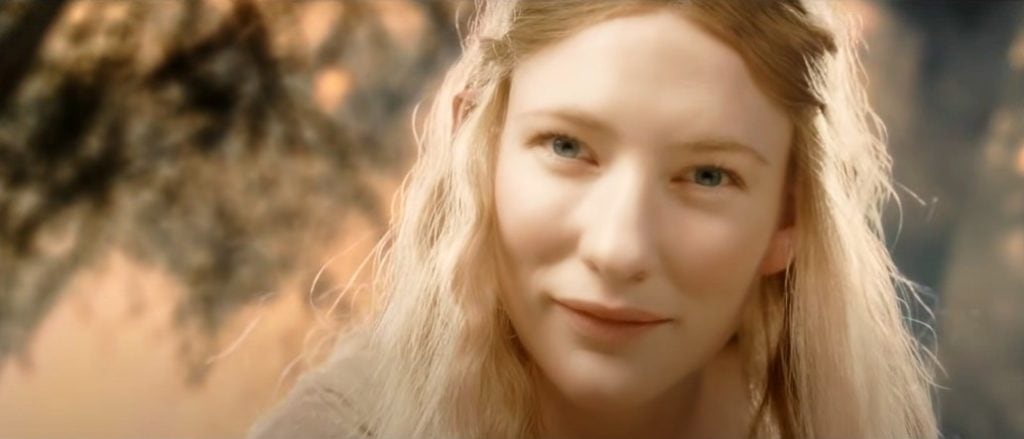
Then I realized another thing. The fact that as a man, I am not even remotely tempted to go to that dark tribal place of “Way to go Elrond! Put her back in her place!”, is very strong evidence that Tolkien did way more to “bring down the Patriarchy” and “destabilize gender norm” than any other self-professed activist involved in the making of this show. And he accomplished all this only with a pen. Without a billion-dollar budget, with no CGI and no divisive campaigns.
I think this is also exactly why I didn’t buy the line “The past is dead, you either move on or die with it” at the end of the trailer. It just doesn’t have any impact when you insist on showing me such archaic dynamics that simply did not and could not exist between these two characters I know so well. You guys are the ones who should move on, because Tolkien’s world has female strength and feminine powers thousands of years old. The kind of power that does not require an armor or a sword to announce its presence.
Some of Tolkien’s critics may say that it is very hard to ascribe female empowerment to Tolkien, when the world he created was clearly run by men, and very few women played significant roles in his stories. To them I say that this is yet another testament to Tolkien’s greatness and that he couldn’t have accomplished all that he did in any other way.
Had he created a mythology that did not reflect the way the ancient world was actually built, people would not have been able to relate or connect with it, and his work would have had virtually no impact at all. But instead, he masterfully crafted a world which felt very authentic, and wove into it very progressive ideas for that time, and basically “Inceptioned” an unsuspecting audience.
The proper way to enjoy and appreciate Tolkien is to immerse yourself in the world he so brilliantly composed and orchestrated, and not selfishly trying to play your own dissonant notes into an already well thought out piece. If you really read Tolkien and truly understood his work, you would know exactly what I am talking about. If you consider yourself a Tolkien fan yet you still believe it is okay to twist his hard work for your own desire, then I will look for you in the field of Dagor Dagorath.
But if you are like me and you believe that racism should be cast into the fire from whence it came, then I will buy you a pint at the Prancing Pony. Until then just remember my friend – you bow to no one.
Stay in Touch!
Get the next post from Hebrew Monk directly to you inbox!
Don't like emails? Subscribe to Heberw Monk's Telegram Channel instead.

